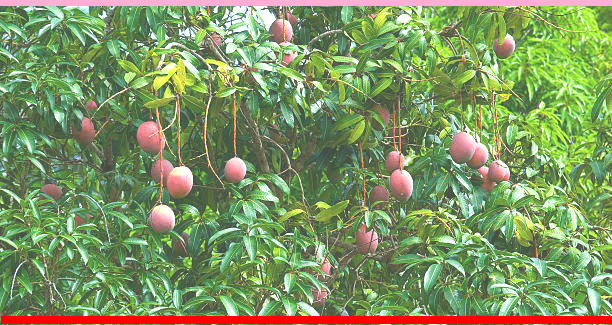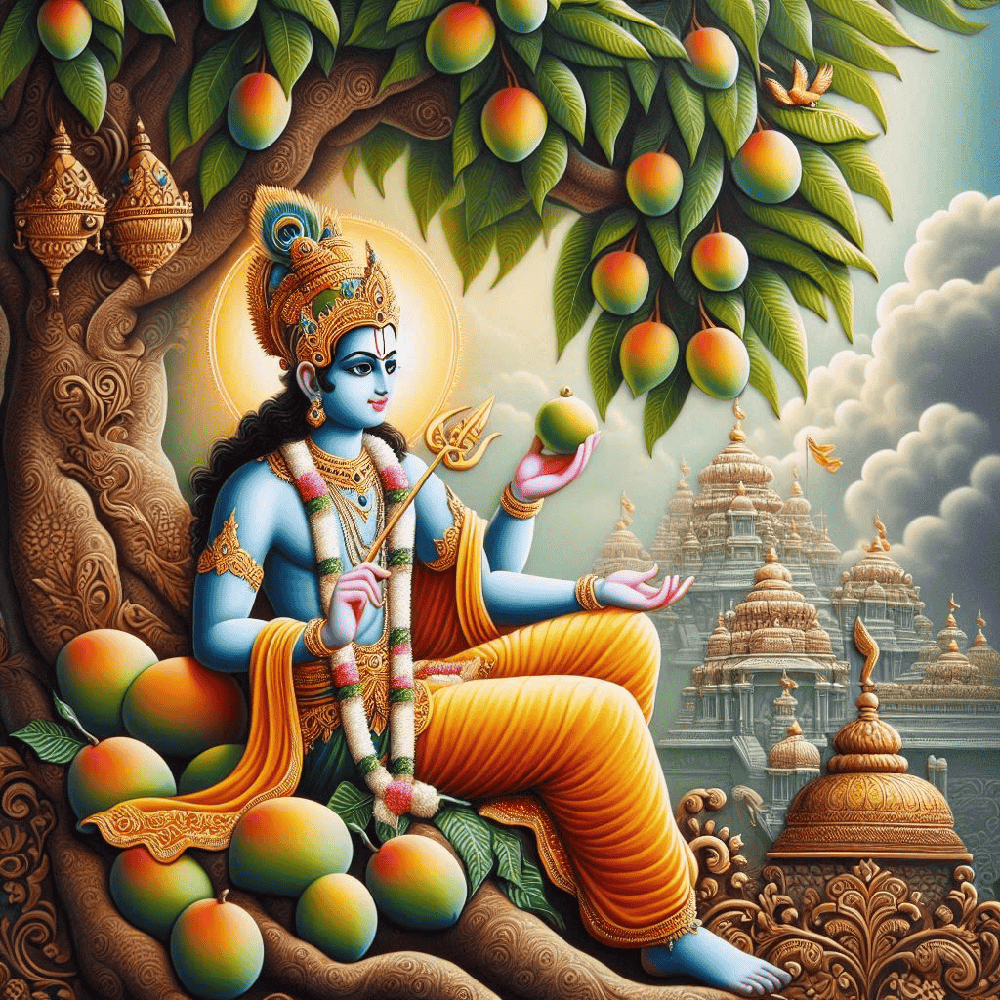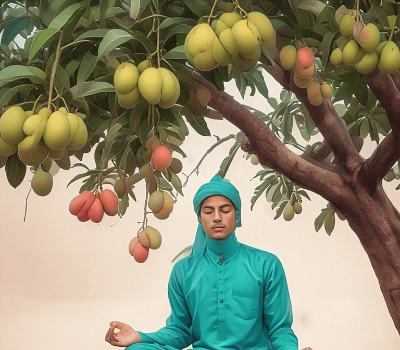The sacred mango tree

The mango tree is another sacred tree in Hindu religion. Each part of the tree are used in many rituals. In grihaprabesh puja string made from mango leaves is hung on the entrance. Mango leaves are kept with coconut in kalasha sthapana. Blossoms of mango tree are offered to Sarasvati on Basant Panchami. In Buddhism, it is believed that Lord Buddha created many mango trees in Shravasti, an Indian district from one seed.

In India the mango fruit is considered as the symbol of love and fertility. It is mentioned in many Hindu scriptures like puranas, Ramayana and Mahabharata. It is said that the mango leaves on a purna kalasha symbolizes life of the human. Hindus may also brush their teeth with mango twigs on holy days.

Conclusion: The sacred mango tree stands as a testament to the rich cultural heritage and spiritual traditions of India. May its significance inspire us to appreciate the beauty and wisdom of nature.
Plant a mango tree in your backyard or support reforestation efforts to help preserve this sacred species for future generations.
by Rashmita Nayak


